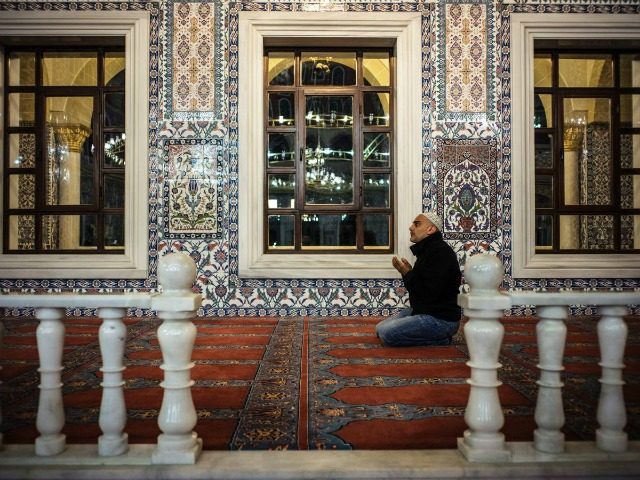Turkey’s Religious Affairs Directorate, also known as the Diyanet, reports that 8,985 new mosques have been built during the past ten years, with the Central Anatolian province of Konya containing 3,134 of them.
The northern province of Samsun received the second-highest number of new mosques at 2,610, while the Black Sea province of Kastamonu came in third with 2,610 mosques, according to a report by Hurriyet Daily News. Turkey’s capital of Ankara saw more than 2,000 new mosques constructed between 2005 and 2015.
One of those new Ankara mosques happens to be located in the presidential palace of Recep Tayyip Erdogan, who declared in January 2015 that the presidential complex would become formally known as a kulliye, an “Ottoman architectural concept of buildings that surround a mosque and are managed by a mosque,” as the Gatestone Institute explains.
Erdogan’s mosque is big enough to accommodate 3,000 people. During its opening ceremony in 2015, the Turkish president declared, “Wherever there is a dome, a minaret today, we know it is the homeland of Muslims.”
The Gatestone Institute reports this mosque is a sore spot with Turkish secularists, who took the first-ever performance of the Islamic dhikr ritual of devotion in the presidential palace last year as a message that Turkey is becoming thoroughly Islamicized.
“They hold such events to establish hegemony over society, to scare and terrorize people – mainly Alevis, secularists, Christians, and even Muslims who do not agree with their policies. They aim to silence, repress, and standardize the people,” explained one such critic, Kemal Bulbul, who is himself an Alevi – a branch of Shia Islam that some other Muslims regard as inauthentic. One of the unusual attributes of the Alevi faith is that they do not worship in mosques.
Buzzfeed reported in December 2015 that one of the new mosques, under construction on Camlica Hill overlooking Istanbul, will be the largest in Turkey when it is complete. Architects have denounced it as an “aesthetic travesty,” and a lawsuit against its construction charges that its construction violates building regulations.
Buzzfeed notes that most other legal challenges against mosque construction in Turkey have proven futile, while Gatestone reports it is extremely difficult to obtain permission for building new churches.
None of that matters because the giant mosque is considered “the signature project” of President Erdogan, part of his ideological crusade to reshape both the physical and political landscapes of Turkey. Mosque construction is seen by critics as part of Erdogan’s system for distributing huge amounts of construction funding to cronies across the country.
“These mosques are not about religion. They’re about authority and power,” one activist complained.

COMMENTS
Please let us know if you're having issues with commenting.